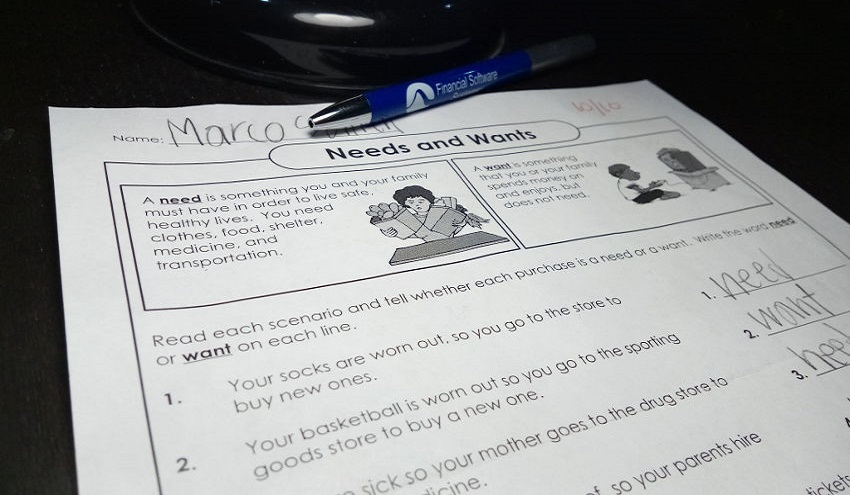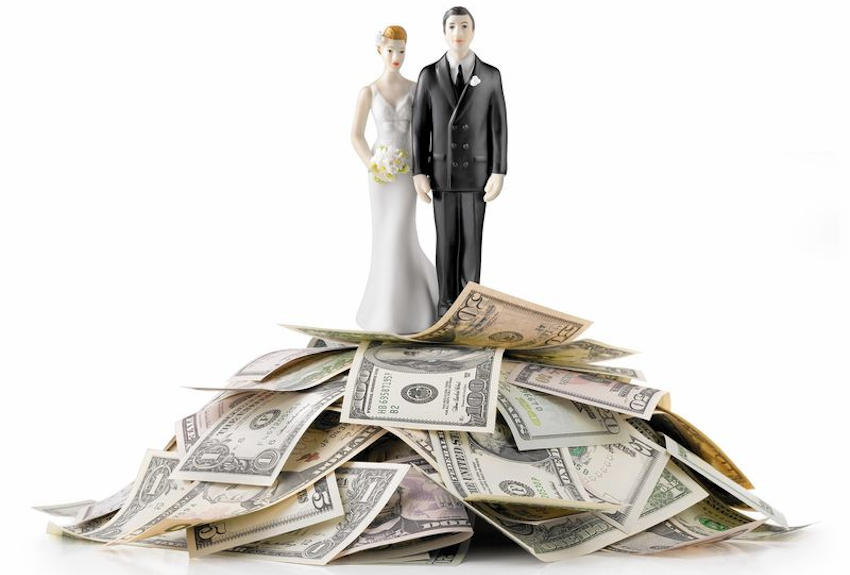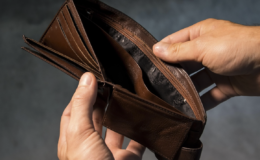Great post. Totally true. Our consumer culture is all about wants.
Distinguishing between “Wants” vs “Needs” is so easy, even a 9-year-old can do it
- By : Menard
- Category : Budgeting, Spending
- Tags: Maslow's Hierarchy of Needs, Wants vs need

“Hey pa, I got a perfect score!” my son proudly exclaims while greeting me as I come in the kitchen door next to my garage. I just got home from my long commute from work.
“Great job! I’m so proud of you.” I replied, barely looking into the piece of paper he was eagerly handing to me. I’m not really in the reading mood when I’m hungry. All I needed was food in my tummy, and probably some relaxation time. I also wanted to eat a piece of that leftover pumpkin pie my wife bought at Costco.
It was only after dinner while sorting through some stuff did I notice what the test was all about. And I was pleasantly surprised– it was to rate my third-graders’ ability to distinguish his wants versus needs.
This led me to think of the following…
If a nine-year-old can perfectly tell the difference between needs and wants, how come many people are still living paycheck to paycheck?
It’s easy to blame Corporate America and the media. Every day, we are bombarded with advertisements that make us want more and more of what we don’t really need. This coupled with the abundance of credit made available to North American consumers fuels what already is a strong desire to consume more.
But we have only ourselves to blame for letting ourselves succumb to spending money we don’t have. It’s one thing to desire more than what we need– that’s human nature. It’s another thing to buy that thing on credit just so we can keep up with the Joneses.
Instead of buying that $400 laptop required for college, we end up spending three or four times as much just so we get something that has a fruit logo. We end up financing a brand new mini-van when a baby is on the way when all we needed is a dependable car seat. We end up going to expensive vacations just so we can impress friends on social media.
Don’t get me wrong, being accepted socially is also a need. The problem is when you try to fill this need ahead of others that are more important. If you ever studied Abraham Maslow’s well-accepted “Hierarchy of Needs” theory in high school, you’ve learned that the need for “belonging” is only third in line.

The physiological need of having nutritious food to eat, clean water to drink, enjoyable sex, and perhaps a decent toilet to poop into, which are all vital to survival, naturally comes first. One’s safety and security, including being healthy and having a stable income or employment, and sound overall finances are second.
And the only way to get to the very top tier of “self-realization” (so one can fulfill one’s own potential) is to satisfy every tier, starting from the very bottom– in that particular order!
The perversion of this hierarchy, resulting in messed-up priorities, is the root cause of many people’s money problems today. Straightening these priorities can fix most problems.
Start by learning how to distinguish your needs from your wants. If my nine-year-old can, so can you.



